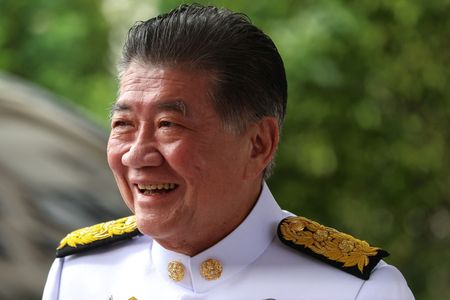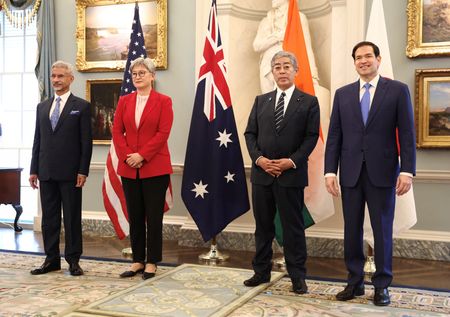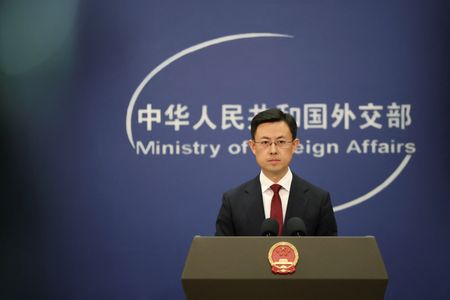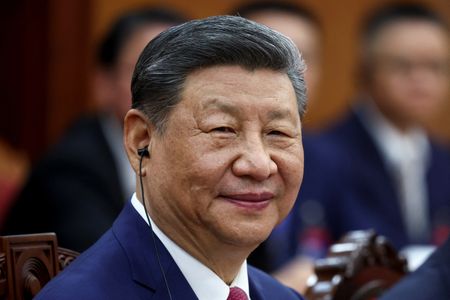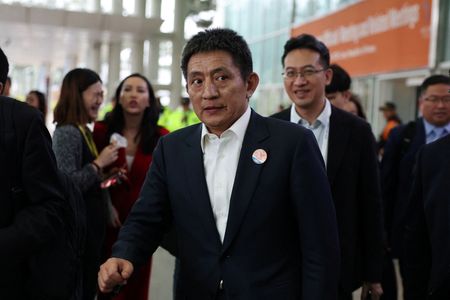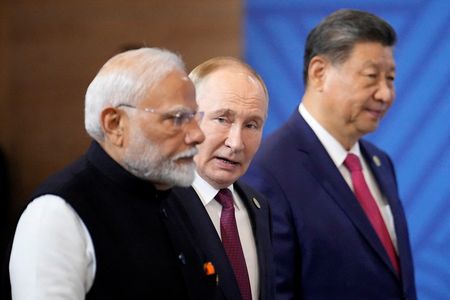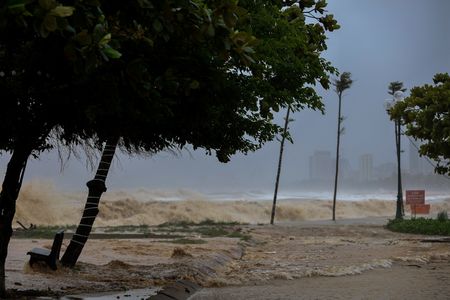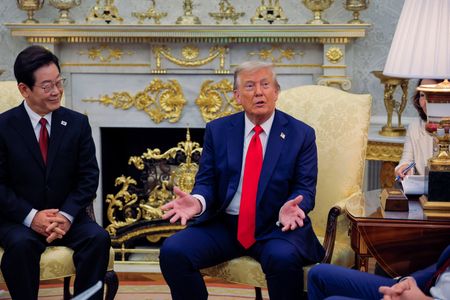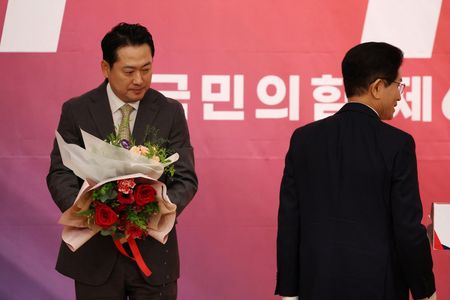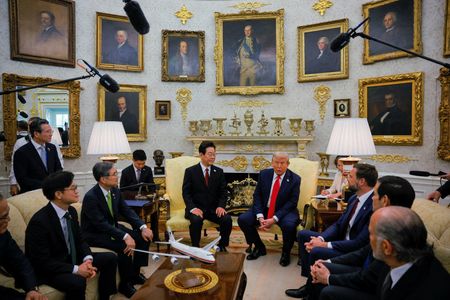By Chayut Setboonsarng and Panarat Thepgumpanat
BANGKOK (Reuters) – Thailand should be commended for managing the return of 40 Uyghurs to China, a deputy premier said on Friday, as his country endured a torrent of international condemnation over its secretive deportation and Bangkok embassies sent out security alerts.
The 40 Uyghurs who had been held in Thailand for a decade were sent back to China in a pre-dawn operation on Thursday, defying calls from United Nations human rights experts who said they would be at risk of torture, ill-treatment and “irreparable harm” if returned.
The move also drew a rebuke from Australia and also Canada and Britain, while the European Union and the U.N. refugee agency said Thailand had clearly violated its international obligations.
U.S. Secretary of State Marco Rubio expressed alarm at the forced return of Uyghurs by a U.S. ally to a country where he said the Muslim minority had faced genocide, forced labour and crimes against humanity.
But Thai ministers on Friday said measures were being taken to ensure their wellbeing, including periodic inspections starting from next week.
“Thailand should be commended for managing this problem,” Defence Minister and deputy premier Phumtham Wechayachai told a press conference.
“This is done out of goodwill of the Thai government and not ill intent … it is a good thing to get them out of detention so they can return to their normal lives with relatives, husbands, wives and children.”
Phumtham said the Uyghurs returned voluntarily and Thailand had been assured by China they would be cared for and not mistreated.
The 40 Uyghurs were part of a group of 300 who fled China and were arrested in Thailand in 2014. Some were sent back to China and others to Turkey, with the rest kept in Thai custody.
SECURITY CONCERNS
The deportation of the Uyghurs was Thailand’s second in a decade and some diplomats and security analysts believe the July 2015 transfer of 100 Uyghurs to China led to the bombing a month later of a busy Bangkok shrine that killed 20 people in the worst attack of its kind on Thai soil.
The U.S. embassy in Bangkok on Friday issued a security alert for its citizens in Thailand referring to the 2015 incident. It did not cite a specific threat.
“Similar deportations have prompted violent retaliatory attacks in the past,” it said in an alert posted on its website.
Japan sent an email warning its nationals in the country, its embassy told Reuters.
The Thai foreign ministry did not immediately respond to a request for comment on the security alerts.
Thailand’s police chief had ordered increased surveillance of key areas and tourist attractions since Thursday, two police sources told Reuters, requesting anonymity because they were not authorised to speak to media.
Thai authorities at the time of the 2015 attack concluded it was linked to their crackdown on a human trafficking ring, without specifically linking the group to the Uyghurs. Two ethnic Uyghur men were arrested in connection with the attack and their trial is proceeding, despite repeated delays.
Rights groups and some Western governments have accused Beijing of widespread abuses of Uyghurs, a mainly Muslim ethnic minority numbering about 10 million in the western region of Xinjiang. China denies any abuses.
Asked on Friday about international criticism of the deportation, China’s foreign ministry said it firmly opposed “groundless accusations” and interference in its internal affairs.
Spokesperson Lin Jian told a regular briefing Rubio’s allegations of genocide and forced labour were “blatant lies of the century”.
(Reporting by Chayut Setboonsarng, Panarat Thepgumpanat, Panu Wongcha-um and Devyot Ghoshal; Additional reporting by Liz Lee in Beijing; Editing by Martin Petty)

